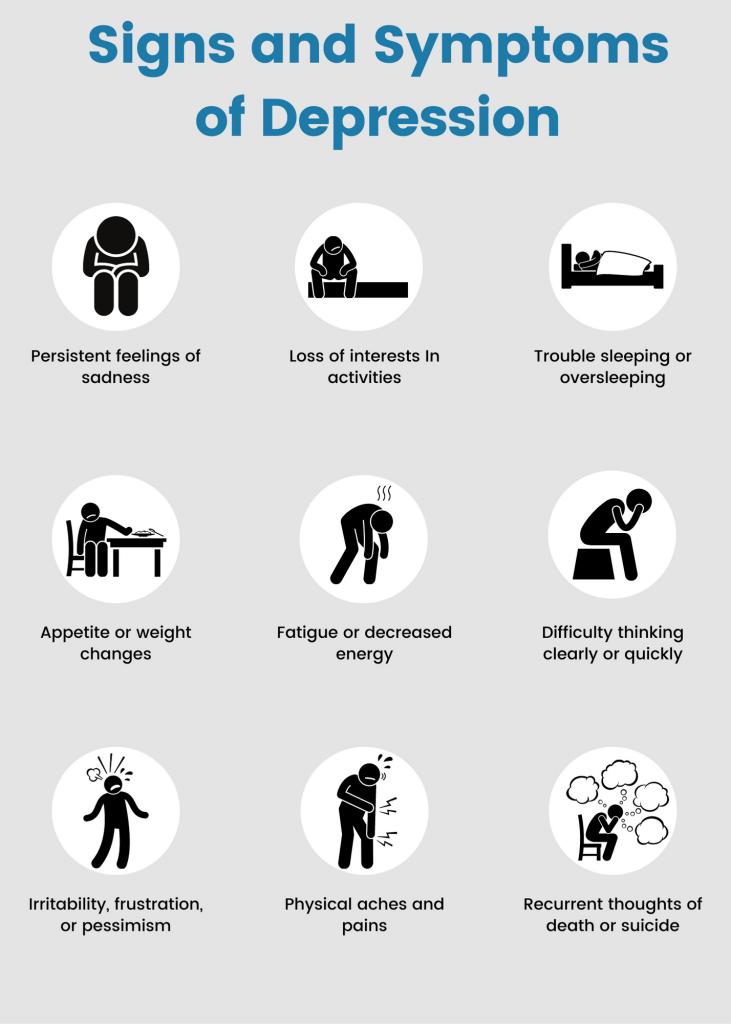Introduction:
Depression is a complex and prevalent mental health condition that affects millions of people worldwide. Despite its widespread impact, there are many aspects of depression that remain misunderstood. In this article, we delve into 10 fascinating facts about depression, shedding light on the condition and exploring effective treatments.
1. Global Prevalence:
Depression is a global health concern, affecting people of all ages and backgrounds. According to the World Health Organization (WHO), over 264 million people worldwide suffer from depression, making it a leading cause of disability.
2. Biological Basis:
Depression has biological roots, involving imbalances in neurotransmitters such as serotonin and norepinephrine. Genetic factors, hormonal changes, and alterations in brain structure also contribute to its development.
3. Diverse Symptoms:
Depression manifests in various ways, beyond the commonly known symptoms of persistent sadness. Other indicators include changes in appetite, sleep disturbances, fatigue, loss of interest in activities, and difficulty concentrating.
4. Types of Depression:
Major Depressive Disorder (MDD) is just one form of depression. Other types include Persistent Depressive Disorder (dysthymia), Bipolar Disorder, Seasonal Affective Disorder (SAD), and Postpartum Depression, each with its unique features and challenges.
5. Connection with Chronic Illness:
Depression is often comorbid with chronic physical conditions. Individuals with chronic illnesses such as diabetes, cardiovascular diseases, and autoimmune disorders are at a higher risk of developing depression.
6. Cultural Variances:
Cultural factors influence how depression is perceived and expressed. In some cultures, somatic symptoms such as physical pain may predominate over emotional symptoms, affecting the way depression is diagnosed and treated.
7. Role of Trauma:
Traumatic experiences, such as abuse or significant life events, can increase the risk of depression. Understanding and addressing past traumas are integral to effective treatment.
8. Influence of Lifestyle:
Lifestyle factors, including diet, exercise, and sleep, play a role in depression. Adopting a healthy lifestyle, incorporating regular physical activity and maintaining a balanced diet, can contribute to overall well-being.
9. Stigma and Barriers to Treatment:
Stigma remains a significant barrier to seeking treatment for depression. Misconceptions about mental health can prevent individuals from reaching out for help, emphasizing the importance of fostering open conversations and reducing stigma.
10. Effective Treatment Approaches:
Depression is a treatable condition, and various therapeutic interventions are available. Common treatment approaches include psychotherapy (such as Cognitive-Behavioral Therapy), medication (antidepressants), and, in some cases, a combination of both. Lifestyle modifications, support groups, and holistic approaches can also contribute to recovery.
Treatment Strategies:
1. Psychotherapy:
Cognitive-Behavioral Therapy (CBT), Dialectical Behavior Therapy (DBT), and interpersonal therapy are effective psychotherapeutic approaches for treating depression. These therapies help individuals identify and change negative thought patterns and develop coping skills.
2. Medication:
Antidepressant medications, such as selective serotonin reuptake inhibitors (SSRIs) and serotonin-norepinephrine reuptake inhibitors (SNRIs), are commonly prescribed. Medication is often used in conjunction with psychotherapy to address both the biological and psychological aspects of depression.
3. Lifestyle Changes:
Adopting a healthy lifestyle can significantly impact mood. Regular exercise, a balanced diet, and sufficient sleep contribute to overall well-being and can complement other treatment modalities.
4. Support Systems:
Building a strong support network is crucial. Friends, family, and support groups provide emotional support, understanding, and encouragement throughout the recovery process.
5. Holistic Approaches:
Holistic approaches, such as mindfulness meditation, yoga, and acupuncture, have shown promise in alleviating depressive symptoms. These practices focus on the mind-body connection and can be valuable components of a comprehensive treatment plan.
6. Personalized Treatment Plans:
Depression is a highly individualized condition, and there is no one-size-fits-all approach to treatment. Mental health professionals work collaboratively with individuals to develop personalized treatment plans that address specific symptoms, challenges, and preferences. The tailored nature of these plans increases the likelihood of successful outcomes.
7. Impact on Relationships:
Depression can strain relationships, affecting communication, intimacy, and overall dynamics. Partners, family members, and friends play a vital role in providing support. Educating loved ones about depression, fostering open communication, and involving them in the treatment process can strengthen relationships and create a more supportive environment.
8. Recurrence and Relapse Prevention:
Depression is a condition that may recur. Understanding the risk factors for relapse and implementing preventative strategies are crucial components of long-term management. This may involve ongoing therapy, medication maintenance, lifestyle adjustments, and building resilience against potential triggers.
9. Neuroplasticity and Recovery:
The brain exhibits a remarkable ability to change and adapt, known as neuroplasticity. Engaging in therapeutic activities, learning new coping mechanisms, and practicing mindfulness can contribute to positive neuroplastic changes, aiding in the recovery process.
10. Collaborative Care:
Effective treatment often involves a collaborative approach that extends beyond mental health professionals. Primary care physicians, nutritionists, and other healthcare providers may play integral roles in addressing physical health, nutritional needs, and overall wellness. Coordinated, multidisciplinary care enhances the comprehensiveness of treatment.
Conclusion:
Depression, though challenging, is a treatable condition with numerous facets that make it a subject of ongoing research and understanding. By recognizing the diverse aspects of depression, from its global impact to personalized treatment strategies, we can collectively work towards dispelling stigma, fostering awareness, and providing meaningful support to those affected. If you or someone you know is grappling with depression, reaching out for professional help is a courageous step towards reclaiming a life of fulfillment and well-being.



No comments:
Post a Comment